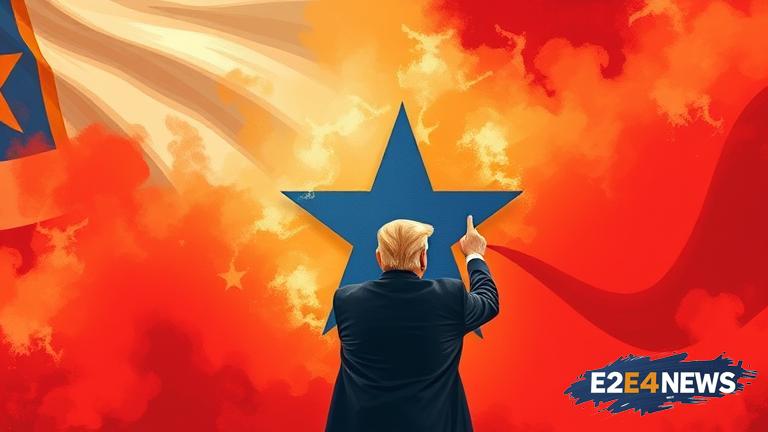In a move that has sparked widespread controversy and debate, former President Donald Trump has announced plans to ban flag burning in the United States, despite a landmark Supreme Court ruling that deemed the practice to be protected under the Constitution. The Supreme Court’s decision in Texas v. Johnson in 1989 established that flag burning is a form of symbolic speech and is therefore protected by the First Amendment. However, Trump has argued that flag burning is a desecration of the American flag and an insult to the country’s values and history. The proposed ban has been met with fierce opposition from civil liberties groups and free speech advocates, who argue that it would be a clear infringement on the right to free expression. They point out that the Supreme Court’s ruling in Texas v. Johnson was a clear and unequivocal affirmation of the right to engage in symbolic speech, even if it is unpopular or offensive. The American Civil Liberties Union (ACLU) has condemned the proposed ban, stating that it would be a ‘blatant attempt to suppress dissent and stifle free speech.’ The organization’s executive director, Anthony Romero, has argued that ‘the flag is a symbol of our country’s values, including the right to free speech and dissent.’ Other critics of the proposed ban have pointed out that it would be difficult to enforce and would likely lead to a wave of costly and time-consuming lawsuits. They also argue that the ban would be a form of government overreach and would undermine the principles of democracy and free expression. The proposed ban has also been criticized by some veterans’ groups, who argue that it would be a disservice to the very principles of freedom and democracy that they fought to protect. The controversy surrounding the proposed ban has sparked a wider debate about the meaning and significance of the American flag and the role of free speech in American society. Some have argued that the flag is a sacred symbol that should be treated with reverence and respect, while others see it as a powerful symbol of American values and principles that can be used to express dissent and protest. The debate has also raised questions about the limits of free speech and the role of government in regulating expression. While some argue that free speech should be absolute and unrestricted, others believe that there are limits to free speech and that certain forms of expression, such as hate speech or incitement to violence, should be prohibited. The proposed ban on flag burning has also sparked a wider conversation about the state of American democracy and the health of the country’s institutions. Some have argued that the proposed ban is a symptom of a deeper disease, in which the government is seeking to suppress dissent and stifle free speech in order to maintain its power and control. Others have argued that the proposed ban is a necessary measure to protect the country’s values and traditions from those who would seek to desecrate them. The controversy surrounding the proposed ban is likely to continue in the coming weeks and months, as lawmakers and citizens grapple with the complex and nuanced issues surrounding free speech, patriotism, and the role of government. As the debate rages on, one thing is clear: the proposed ban on flag burning has sparked a vital and necessary conversation about the meaning and significance of the American flag and the role of free speech in American society. The Supreme Court’s ruling in Texas v. Johnson remains a powerful affirmation of the right to free speech and symbolic expression, and it is likely to continue to shape the debate surrounding the proposed ban. Ultimately, the outcome of the controversy will depend on the ability of lawmakers and citizens to balance the competing values of free speech, patriotism, and respect for the American flag. The proposed ban has also raised questions about the potential consequences of such a ban, including the potential for widespread protests and civil unrest. It has also sparked concerns about the potential impact on marginalized communities, who may be disproportionately affected by the ban. The controversy has also highlighted the importance of education and critical thinking in navigating complex issues surrounding free speech and patriotism. As the debate continues, it is essential to consider the potential long-term consequences of the proposed ban and to engage in a nuanced and informed discussion about the role of free speech in American society.
